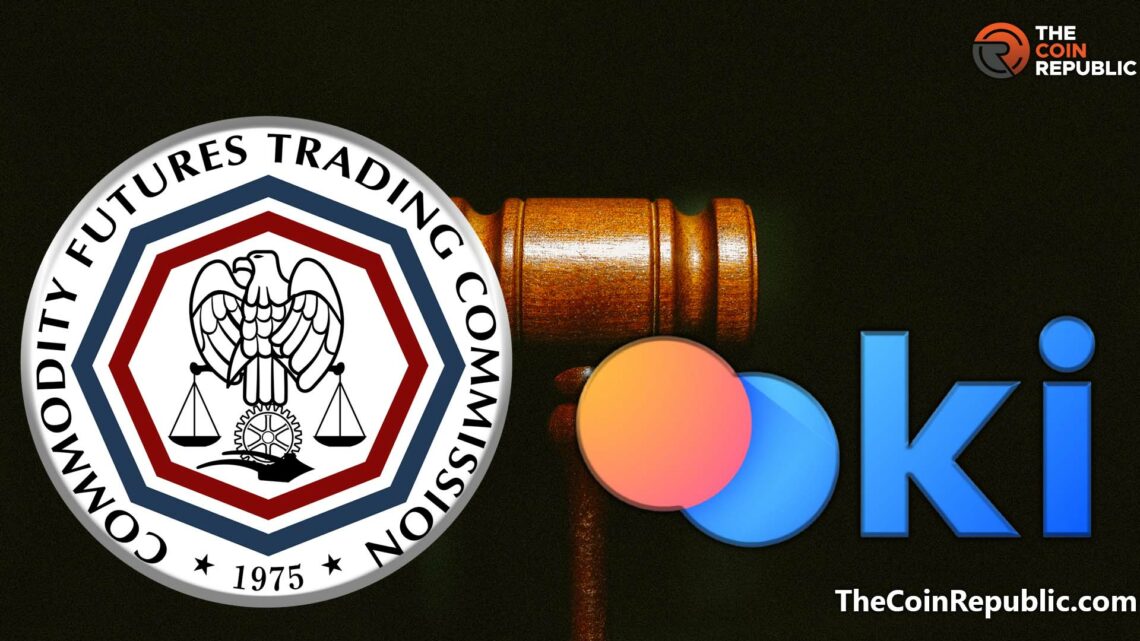- 4 amicus curiae briefs were filed in support of Ooki DAO.
- Earlier, Ooki acknowledged the alternative service lawsuit on Twitter.
- CFTC V Ooki DAO might just be a landmark case like SEC V Ripple labs.
The Commodity Futures Trading Commission (CFTC) hit back at amicus briefs filed by DeFi Education Fund; Venture Capital Firms Paradigm; crypto legal consortium LeXpunK and Andreessen Horowitz. The briefs are intended to compel the judge to change his decision to approve the CFTC’s unconventional method of serving Ooki a lawsuit – CFTC served the lawsuit via an assistant chat box on Ooki’s website.
CFTC argued in the motion filed on Monday that the commission used the only way the DAO members were available. Ooki members go by pseudonymous names.
Decentralized Autonomous Organizations (DAOs)
Decentralized Autonomous Organizations or DAOs are a popular use case of blockchain technology. Gauging the potential of decentralization based on Blockchain technology, cryptocurrency enthusiasts conceived the novel idea of organizations that would be run in a gound-up design with no central authority.
Members of the DAO make decisions pertaining to the future of the organization using votes. However, the voting power is based on the amount of tokens held by the members. Aave is the most popular example of a DAO – the organization acts as a bank without centralized authority.
This key issue with DAOs is the lack of centralized authority – yes, it’s defining characteristic is its weakness. Presently, most big organizations run on rules and depend on regulatory organizations for the enforcement of these rules. Most institutions are lead by a few people who are accountable to the organization’s condition and its functioning. A DAO effectively lacks leadership. It’s essentially a democracy with no legislature, executive or judiciary. DAOs members’ vote-weight is directly associated with the fate of the organizations. So if poor or malicious decision are made, the poor or malicious decision makers lose voting power.
The CFTC argued in its motion opposing the amicus briefs that DAOs are being projected as entities that cannot be sued which is not fair and allows no one to be held accountable for wrongdoings.
A case similar to SEC
While the Securities and Exchange Commission regulates the securities market, the CFTC regulates the derivatives market. Derivatives are financial instruments that derive their value from underlying commodities. Both authorities are embroiled in controversial lawsuits against blockchain and cryptocurrency organizations.
SEC V Ripple is another landmark case running parallel to this case. However, in SEC’s case, there is a lack of clarity on fundamental aspects and suspicion is rife among community members against both parties in the case.
Unlike SEC V Ripple, the CFTC case is clear and the amicus briefs in support of Ooki may not make change anything. That the judge approved the regulatory authority’s action speaks volumes regarding the direction of the case.
CFTC argued in the motion wherein it sought the judge’s approval for alternative service mechanism that the DAO members had discussed the lawsuit on its Telegram group and 112 members had viewed the suit.
The commission argued in the motion that the suit was filed against the Ooki DAO and not the DAO technology per se, addressing accusations that the authority was targeting the novel technology.


 Home
Home News
News










